 Clinical Study Shows Effectiveness of GNLD Omega-III Salmon Oil Plus
Clinical Study Shows Effectiveness of GNLD Omega-III Salmon Oil Plus
Against Markers of both Cardiovascular Disease and Inflammation
Presented at: FASEB (Federation of American Societies for Experimental Biology)
Annual Meeting, April 2008
Published in: The FASEB Journal, Abstract Published Online in April 2008
Effect of omega-3 fatty acid supplementation on Omega-3 Index
and red blood cell (RBC) membrane fatty acid composition
FASEB J. 2008 22:1094.2 [Meeting Abstract]
klicka på länken här för att se studien: http://www.fasebj.org/cgi/content/meeting_abstract/22/1_MeetingAbstracts/1094.2
Presented at: American College of Nutrition Annual Meeting, October 2008
Published in: JACN (Journal of the American College of Nutrition), Abstract Published
in Volume 27 (5), October 2008.
Carughi, A. Effect of omega-3 fatty acids supplementation
on markers of cardiovascular health and inflammation
Effect of omega-3 fatty acid suplementation on Omega-3 Index and red blood cell (RBC) membrane fatty acid composition
Arianna Carughi and Dalia Perelman
Health Research & Studies Center, Los Altos, CA
ABSTRACT
Omega-3 fatty acids (n-3 FA) have been shown from epidemiological studies and clinical trials to lower incidence of cardiovascular disease (CVD) in patients with pre-existing CVD as well as in healthy individuals. In randomized secondary prevention trials fish or fish oil have been shown to lower total and coronary heart disease (CHD) mortality at intakes of about 1 g/day. The Omega-3 Index (EPA + DHA expressed as % of total FA) has been proposed as a physiologically relevant, modifiable, independent and graded risk factor for death from CHD. RBC membrane FA composition correlates well with biomarkers of n-3 FA including serum EPA and DHA, whole blood EPA, DPA and DHA and FA composition of cardiac tissue. The present dietary intervention study investigates the effect of a fish-oil based, n-3 FA supplement on Omega-3 Index and RBC membrane FA composition. Thirty healthy men and women consumed a supplement providing 1070 mg total n-3 FA (460 mg DHA, 480 mg EPA, and 80 mg other n-3 FA) daily for 4 wks. At the end of this period there was a significant 24% increase (p<0.01) in the Omega-3 Index (Fig.1). While there were no significant changes in % linoleic, gamma linoleic, and alpha linolenic acid; EPA, DPA and DHA significantly (p<0.01) increased compared to baseline values (0.76% versus 1.4%, 2.30% versus 2.58% and 5.49% versus 6.60% respectively), and % arachidonic acid significantly decreased (19.58% versus 18.83%, p<0.05). This study shows that RBC membrane FA composition and so Omega-3 Index can change in a short time using a fish-oil based supplement.
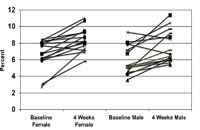
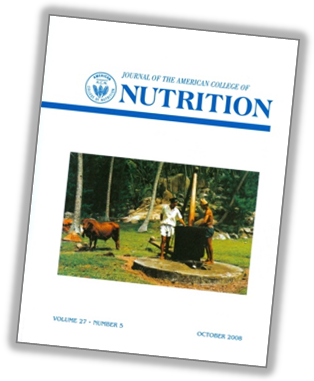
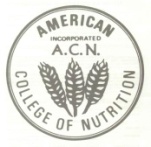
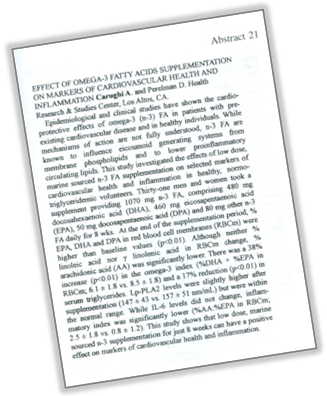
Human clinical trials conducted under the direction of GNLD Scientific Advisory Board Member Dr. Arianna Carughi with Omega-III Salmon Oil Plus displayed powerful protective effects of this leading edge product on markers of cardiovascular disease and inflammation.
This 8-week dietary intervention clinical study with 31 healthy adult subjects looking at the effects of 3 capsules per day of GNLD Omega-III Salmon Oil Plus on cellular omega-3 status and triglyceride levels showed that it was:
BIOAVAILABLE
– Rapidly increased total omega-3 fatty acids and membrane EPA, DPA and DHA levels
• 26% increase in only 4 weeks, 31% in 8 weeks
CARDIOPROTECTIVE
– Decreased triglycerides by 17%
– 38% improvement in omega-3 index, reaching the level of ‘greatest CVD protection’
– Increased O3:O6 ratio by 43%
ANTI-INFLAMMATORY
– Lowered Inflammatory Index by 68%
– Displaced pro-inflammatory arachidonic acid
– Did not significantly change IL-6 levels – further investigation required
_____________________________________________________________________________________
FASEB (Federation of American Societies for Experimental Biology) Annual Meeting, April 2008
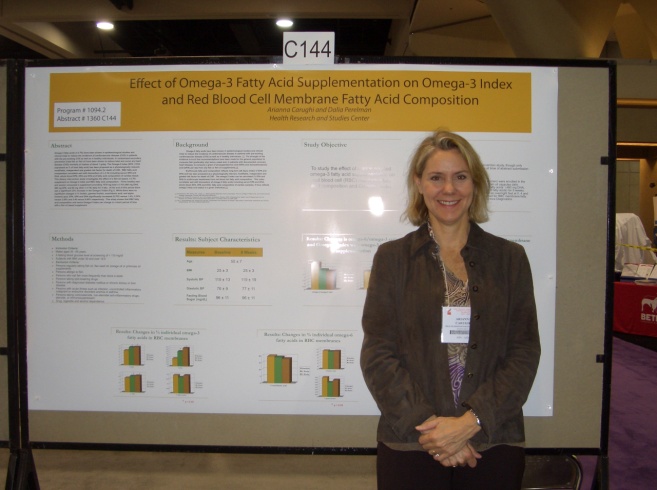

GNLD Scientific Advisory Board member Dr. Arianna Carughi presenting scientific poster on Omega-III Salmon Oil Plus Clinical study
_____________________________________________________________________________________
ACN (American College of Nutrition) Annual Meeting, October 2008
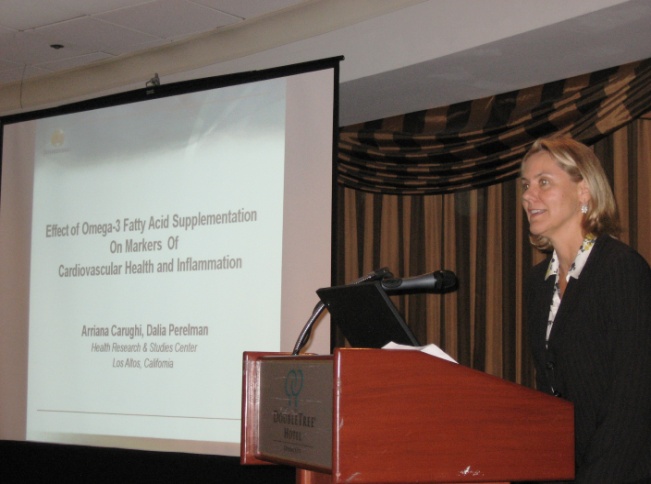


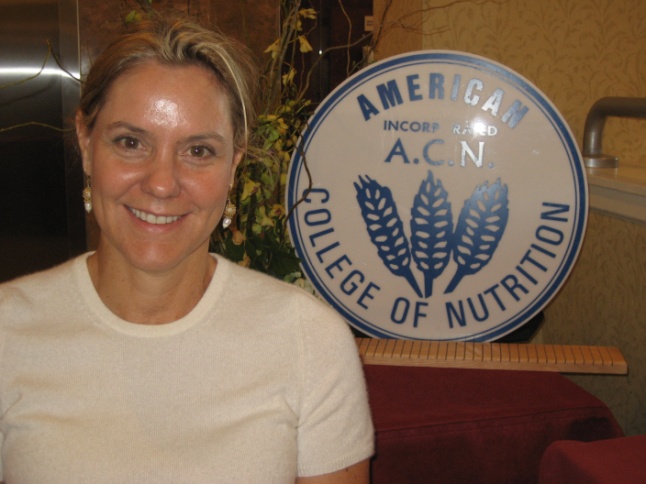
GNLD Scientific Advisory Board member Dr. Arianna Carughi presenting results from Omega-III Salmon Oil Plus Clinical study
About FASEB:
The Federation of American Societies for Experimental Biology (FASEB) is the coalition of societies representing the biological sciences (Physiology, Biochemistry, Immunology, Nutrition, Pharmacology, Anatomy). It promotes scientific progress and education that lead to improvements in human health. Their annual meeting is Experimental Biology. In 2007 13,000 scientists from over 50 countries attended the meeting, 80% of which are researchers at academic institutions. The American Society for Nutrition, the society which accepted the study for presentation at Experimental Biology 2008, is the premier research society dedicated to improving the quality of life through the science of nutrition.
About ACN:
The American College of Nutrition (ACN) is the leading nutrition education organization whose focus is to enhance nutrition and metabolism knowledge among physicians and professionals from all disciplines with a common interest in nutrition, and to promote the application of such knowledge to the maintenance of health and treatment of disease. Their annual meeting provides a forum for interchange of views, professional and educational experiences, and research results in the general field of nutrition. It serves the needs of physicians and professionals from all disciplines with a common interest in nutrition.




![]()